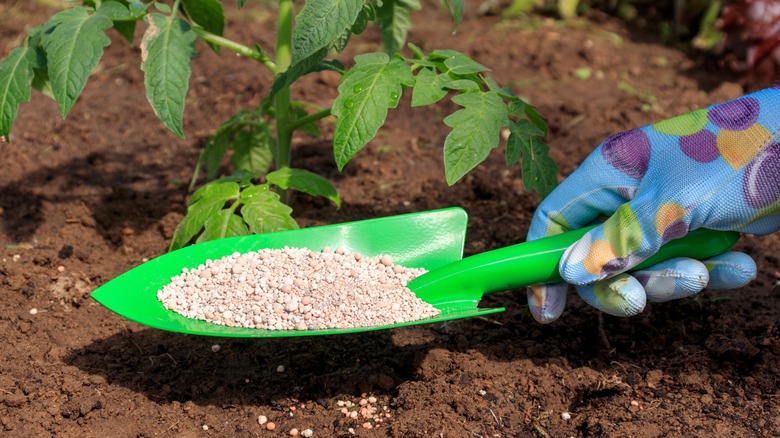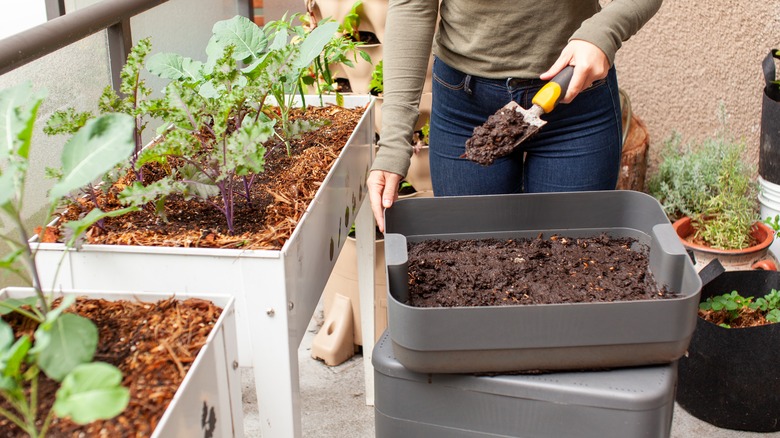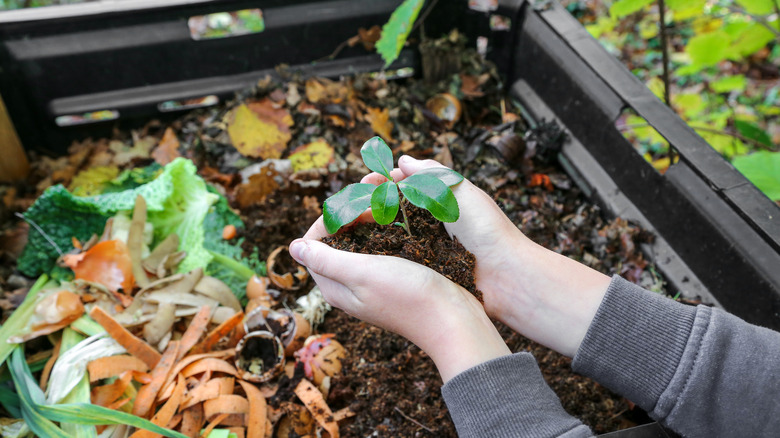The Most Important Place To Use Fertilizer That You're Probably Missing
If you grow plants, chances are that you're aware of the different ways to add nutrients to your garden. With so many different choices — including fertilizer, compost, and manure — it can be hard to know exactly which substance to apply to your garden. However, fertilizer is usually a safe bet. According to Backyard Digs, compost always has a different composition of nutrients and can potentially disturb the wrong plant, and some manure varieties may be unsafe depending on the animal's diet. Meanwhile, fertilizer is relatively consistent since it is man-made.
To be fair, each type of nutrient solution is important. According to the University of Montana, all three are viable choices, and it's best to choose what to apply based on nutrient availability and cost. However, if you don't understand the strengths of each, it's easy to misapply them, ultimately depriving your plants of the nutrients they need to grow and thrive.
Supplementing compost with fertilizer
First of all, if you're using compost in your garden — especially if you make your own compost — hats off for reducing waste and maximizing existing supplies. Compost is a great way to get some extra nutrients into your soil and can even improve its quality! Unfortunately, though, according to C-I-L, it won't directly provide nutrients to your plants, making it important to supplement compost with fertilizer which delivers nutrients straight to the plant.
Wondering how to combine the two? It's easier than you might think! According to Help Me Compost, you should generally add compost to your soil before a growing season — for most places, this means that the best time to apply compost is in the spring. However, the site also acknowledges that you can add compost to your garden in the fall, which will then carry the nutrients over to the spring. Once you've allowed your compost to settle and added your plants to the garden, follow your chosen plants' fertilizer schedule as normal.
Adding fertilizer to compost pile
If you want to maximize the benefits of both substance types, you can try adding fertilizer directly to your compost — especially if you make it at home. However, a couple of quick warnings: fertilizer is so convenient because its nitrogen, phosphorus, and potassium levels are exactly measured, so you know exactly what you're putting into the soil at any given moment (and can compare it with your plant's needs). By mixing fertilizer and compost, you lose the exact measurement precision, so it can be hard to accommodate pickier plants. Also, be sure to keep an eye on what nutrients the fertilizer contains and ensure that the mixture will not harm any of your plants.
While you should keep these warnings in mind, adding fertilizer to your compost can come with significant benefits. According to the University of Missouri, nitrogen-rich substances (like fertilizer!) can help your compost break down faster, a massive benefit if you have lots of ground to cover (or simply forgot to start your compost bin in time). Also, according to the University of Montana, fertilizer will also provide nutrients that compost does not contain significant amounts of, allowing you to access the best of both worlds.


